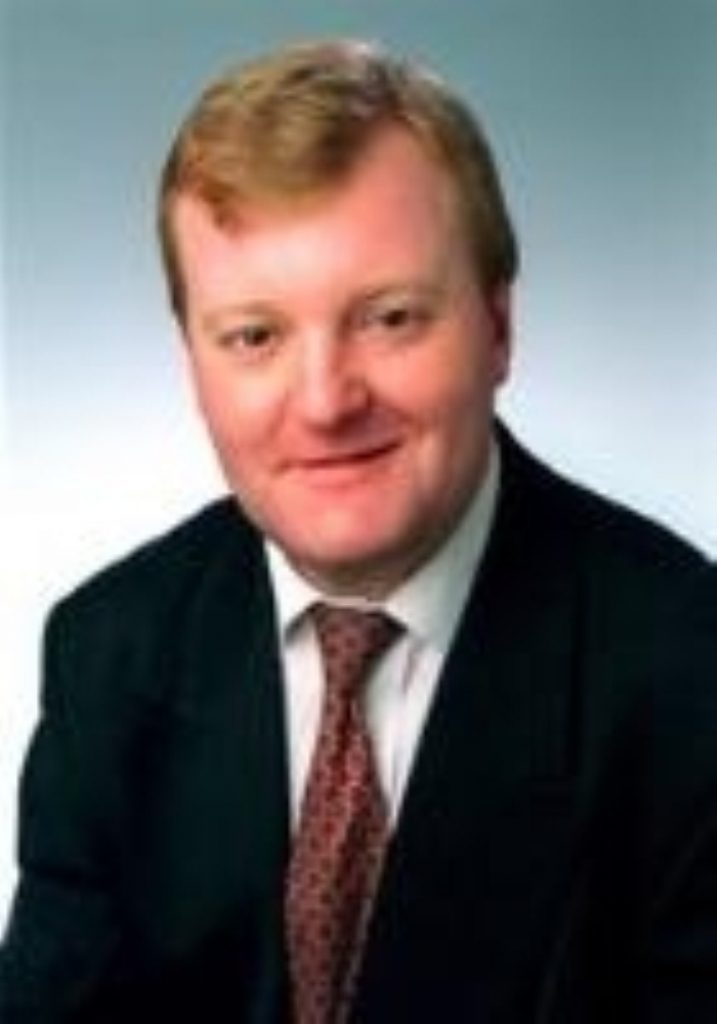Kennedy proposes cull of ministries
Liberal Democrat leader Charles Kennedy has outlined wide-ranging plans to cut down on central government administration.
In a speech to the Social Market Foundation think-tank today, the Liberal Democrat leader signalled a clear policy shift away from manifesto promises at the last election to raise income tax.
Suggesting that tax revenues were currently at the right level to fund Lib Dem plans, Mr Kennedy instead insisted on the need to push ahead with a deep-seated programme of decentralisation.
And he committed to reducing the number of government departments from 19 to 14, cutting the number of ministers by a third as well.


“We want to see the most fundamental restructuring of government that there’s been since the Second World War”, the party leader claimed. “If we’re going to make a real difference in our hospitals and schools and police stations, we need radically to reshape and slim down central government.
Mr Kennedy called for the abolition of the Scotland and Wales Offices, the Office of the Deputy Prime Minister, and also that of the Northern Ireland Office once devolution is complete.
He said that the remaining functions of all four departments should be subsumed into a Department of the Nations and Regions.
It was also time “to sound the death knell for the old departments set up to defend the interests of producers”.
Proposing the setting up of a Department of Consumer Protection and Enterprise, he said: “That would mean axing that corporatist relic, the Department of Trade and Industry. Many of the industrial subsidies which it oversees could be cut. Many more of its functions could be decentralised”.
According to Mr Kennedy, there was also no need for a Department for Culture, Media and Sport. “Much of what it does should be decentralised too, with its industry functions going to the Department of Consumer Protection”, he argued.
Similarly, Defra could go the same way – with a new department of environment and transport taking responsibility for rural issues.
And Mr Kennedy insisted that where existing departments remained in place, much could be done to slim them down.
He announced a target of finding savings of at least one per cent of total annual government spending to re-allocate to priority areas like education, health and tackling poverty.
This would amount to about £5billion and would be derived from reduced staffing and administration costs and possibly from the sale of newly emptied buildings, many of which are placed in some of London’s most prestigious areas.
The move would be made possible by plans to devolve greater power to local services, giving police stations, schools and hospitals more say on how they are run and how they spend their money. It would also see many areas of government activity devolved to sub national levels of government.
The Liberal Democrats faced criticism at the last election for promoting higher taxes, especially when the Labour Party argued that the much vaunted one pence on income tax appeared not to raise enough money for all of the Lib Dem’s proposed spending increases.
Similarly, the latest plans are likely to raise concerns in some quarters that savings made at national level could cost at local level, with schools and hospitals needing to put increased spending into the greater administration required of them.
“This is not about spending less”, Mr Kennedy insisted of his plans. “It’s about saving money where it’s doing little good and redirecting it to where it’s needed most.
“We need less spent on subsidies, less spent on central government, less spent on ministers’ pet projects and more on getting real value for our taxes. The money saved should not be handed back in tax cuts. It should be used to spend more on public services”.
In his speech, Mr Kennedy also restated his party’s plans to scrap what he claimed to be “the unfair and increasingly unpopular council tax” and replace it with a local income tax.












